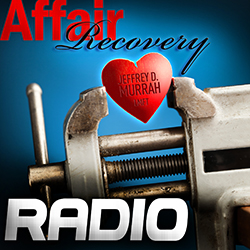Have you ever asked yourself the question, “Am I weird?” There’s also its cousin “Is something wrong with me?” The likelihood is that you’ve asked yourself one of those questions.
You may wonder if you’re normal. In some cases, you may even concern yourself with “How weird are you?”
I talked about this question with my wife this morning. I shared with her my thought that many people obsess over infidelity statistics and the latest survey in search of an answer to the question “Am I weird?”
You may be one of those searching for an answer to the question. Your spouse may have even told you that you’re ‘weird’ and part of you believed what they told you.
When that happens, it leaves you feeling uneasy and unsure. That unsettled feeling inspired you to search through the surveys and statistics on infidelity. You wanted to know if you were weird for being upset about the cheater’s infidelity or the fact that you disapprove of it.
You want to know if you’re ‘normal’ in some way.
When affairs happen, you’re being rejected and devalued. Those are unpleasant feelings that no one wants to experience.
In an attempt to push away those sensations of rejection and devaluation along with the questions they raise, you start comparing yourself to others. On the surface, you dismissed the weirdness question, yet there is a part of you that still questions it.
You want reassurances that you’re okay. This may come through looking at the statistics or worse yet, comparing yourself to the lover.
A part of you believes something is wrong with you. Your search is an effort at disproving that thought.
You look at the numbers and survey results as if looking in a mirror. You consider them in terms of ‘What does that say about me?’
One thing is says about you is that you’re looking in the wrong place. You may find answers, but those answers aren’t going to satisfy your questions or your curiosity. When you’re hurting emotionally, you need answers that address your emotions.
Seeking intellectual answers to emotional hurts never works. Heart problems call for heart solutions and head problems call for head solutions. Confusing the two makes your recovery from an affair harder and more frustrating than it needs to be.
Then again, you may be choosing wrong solutions on purpose, since you could be punishing yourself for being ‘weird’.
One reason recovery is often delayed or drug out longer than it needs to goes back to punishment and penance. You need to suffer for being ‘weird’ or be punished for marrying the cheater.
Even those are self-defeating answers to your situation. You never seem to clearly know when you’ve punished yourself enough or when you’ve done enough penance. There is always something else to beat yourself up about.
If you’re tired of applying head solutions to heart problems and weary of comparing yourself to others, the Getting You Past the Affair Crisis video starts applying emotional solutions to your emotional hurts and moving you forward through affair recovery.
Keeping It Real,
Jeff
















2 Responses
Classic case of gaslighting. The cheater makes hostile distorted judgements of their betrayed spouse to make them doubt themselves at every level. Not enough to have devastated them with betrayal, they damage the psyche even more with insults to leave them mired in self examination instead of questioning the cheater.
Untold,
Thank you for sharing your comment. The distorted judgements are part of the fantasy piece of affairs. There are many fantasies involved, both of a negative nature and a positive nature that energize affairs. One of the problems is that those fantasies damage other people. The action and lies may be in their head, yet the impact of what is in their head and heart make a lasting impact.